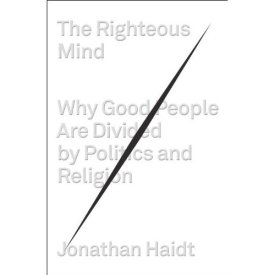Category Archives: Religion
Religion
Informative Graphic of World Religious Membership
An absolutely fascinating graphic of world religious membership from the National Post. It’s encouraging to see that there are over a billion people in the “secular” class of religious belief.
Adam Savage at the Reason Rally
Great speech by Adam Savage.at the Reason Rally
Uploaded by MarkRosengarten on Mar 25, 2012
Adam Savage, co-host of Mythbusters, speaks at the Reason Rally on March 24th, 2012. This was, in my opinion, the best speech of the day at the Rally…and he had some serious competition.
A Great Discussion about Atheism
Below are some links to a really great series of videos from Sunday’s episode of UP, a show on MSNBC hosted by Chris Hayes. This is one of the most thoughtful discussions about the role of atheism in politics and public life that I have ever heard. There are some very intelligent and thoughtful people on the discussion panel including Steven Pinker and Robert Wright. I encourage you to watch as much of it as you can.
Richard Dawkins also joins in for a few of the segments. I have a real problem with his overall attitude and it was interesting to hear some of the reactions to his attitude from the panel. Some disagreeing strongly, others identifying with his more strident take on atheism. I’ve seen the damage that his attitude and incendiary comments have done and the ammunition it gives to conservative religious people, like my parents, so I have a real problem with him.
And also, in one of the later segments a pastor comes out of the closet as an atheist and engages in a fascinating discussion with the panel. I wish there were more thoughtful discussions like this on cable news!
The full show: Sunday’s Show: Atheism
Individual Segments:
I Will Choose Free Will
Each of us, a cell of awareness; imperfect and incomplete
Genetic blends, with uncertain ends; on a fortune hunt that’s far too fleetYou can choose a ready guide in some celestial voice
If you choose not to decide, you still have made a choice
You can choose from phantom fears and kindness that can kill
I will choose a path that’s clear
I will choose free will– Rush, “Free Will”
 I just started reading a new book by Sam Harris entitled “Free Will” in which Sam argues that free will is an illusion. Clearly he makes this argument in opposition to religious arguments about choosing to follow and obey God or not. But also he makes this argument in opposition to his good friend and compatibilist Dan Dennett. The compatibilist view states that free will and determinism are not mutually exclusive and can co-exist.
I just started reading a new book by Sam Harris entitled “Free Will” in which Sam argues that free will is an illusion. Clearly he makes this argument in opposition to religious arguments about choosing to follow and obey God or not. But also he makes this argument in opposition to his good friend and compatibilist Dan Dennett. The compatibilist view states that free will and determinism are not mutually exclusive and can co-exist.
I find that there are few topics more confusing than the free will vs. determinism debate. Most people, including me, seem to have a gut reaction that I am the author of my actions and that I do have a form of free will.
However, as I grow older, I see more and more the power of determinism. I did not choose to be born in this era. I did not choose to be born in the United States. I did not choose to be born into a family of conservative Christians. I did not choose the genes I was given. I did not choose to suffer from Social Anxiety Disorder. I had no role in developing the drug that has largely cured my disorder. I did not choose to be born at all. The number of things that I did not choose is so large that they seem infinite. And the “choices” that I’ve made are so small and petty that they seem almost insignificant. Still it feels like I am not just an automaton and it seems like I do have a measure of freedom at some level.
What about faith? Did I choose to leave the Christian faith? Or was I compelled by experiences and reasoning that parts of my brain could not ignore? I certainly did not choose to enter the Christian faith. I was born into it and it became my default position. And I think that this is the case for many religious people. They are born into their religion, they learn to love it, they internalize it, and unless they undergo a dramatic experience that forces them to question everything they hold sacred, they will not leave the faith.
Right now I think that human beings have a limited form of free will. It is not “pure” free will, because such a thing could never exist. We are heavily constrained by our environment, our biology, and the very nature of our existence. But I think we have a small measure of constrained choice. Some flexibility that comes from the pre-frontal cortex that allows us to override and deny our more ancient biological urges. We can make small but high-level, informed decisions that have major consequences in the long run.
I don’t think I can give up on the idea of free will. Not yet. Not until my back is absolutely up against the wall.
I find that my views on this subject swing back and forth like a pendulum. This subject matter is obviously very complex and I’m sure I’ll have more to say as I finish reading the book, so watch this space. Also, I’d love to hear your thoughts and discuss this topic with you, please add your comments below.
NIV Bible: Controversial Pronouns or Content?
Here is an article I just read in USA Today:
Major provider won’t stop selling controversial bible – USATODAY.com.
Here is a quick excerpt:
Complaints that the New International Version of the Bible (NIV) is inaccurate and too gender-inclusive are not going to stop one of the world’s largest Christian resource producers from selling it.
That translation was criticized at the 2011 Southern Baptist Convention meeting in Phoenix. Church representatives there approved a resolution asking Nashville-based LifeWay Christian Resources — owned by the denomination — to take it off its shelves.
Critics said the translation, which was updated in 2011, is filled with errors when it comes to language about gender, using “brothers and sisters” instead of “brothers” and “they” instead of “he” for a single pronoun. That kind of approach undermines the authority of the Bible, they said.
Bill Maher Unbaptizes Mitt Romney’s Father-in-law
Here is a great video clip from Bill Maher’s HBO Show “Real Time” where Bill performs an “unbaptism” for Mitt Romney’s dead father-in-law. Romney’s father-in-law was a dyed in the wool atheist and scientist who was posthumously baptized into the Mormon church. The Mormon’s believe that when an unbeliever dies they cannot participate in the kingdom of God. However, the dead can be posthumously baptized which gives their immortal soul the choice to participate in this eternal “kingdom”.
From the Mormon perspective, this is a loving and important service for dead souls. If you’re in the Mormon bubble it’s an act of love. If you’re outside the bubble it’s crazy and just a little bit creepy. Oh, and it’s also deeply disrespectful of the memory of the person who in no way endorsed the beliefs of your religion. Luckily Bill Maher comes to the rescue to help out one of the victims: Read the rest of this entry
The Problem with Preaching
It all came back to me this morning as I sat in the pew of my parent’s church. The frustration, anxiety and disgust rippled through my being as the young preacher hurled his hate filled message, thinly disguised as love, down from the pulpit. To be honest, I was rather shocked and left in quite a hurry when the message was finished.
Even in this conservative church, one would think that a Sunday morning Christmas service should have the air of hope and joy about it. Instead of an uplifting message, I was greeted with a diatribe against anyone who dares question or reject the story of Jesus being incarnated in the flesh to die for our sins. It was revolting to witness all of the heads in the congregation nodding in agreement. Ugh, it makes me so angry just thinking about it. This message raised my ire, but it also made me think about the difficulties with preaching in general and one problem in particular.
The real problem with preaching is that it is a one-sided conversation. People listening to a sermon are all too similar to people vegetating in front of a television; the critical faculties of the mind are too easily disengaged and they passively receive statements without questioning. Sometimes it is a great experience with a good story teller delivering a message about decent moral values. Other times it is a rancorous Bible thumper who tries to force a dubious message into your mind through sheer force of will. In the latter case I often wish for a Q and A session after the sermon or some type of forum with a balanced debate about the content of the message.
“Excuse me sir, could you explain why most of the Hindus, Muslims, Atheists, and Liberals that I work with are wonderful people with great personalities and an impressive work ethic? Do you have any close friends with differing religious or political views? No? How do you think this lack of friendship and lack of experience with the “other” colors your perceptions? Maybe instead of raising your voice in self-righteous indignation from the pulpit you should do what the literary Jesus did and spend some time with the ‘other’. Only then will you possibly gain a measure of humility in your discourse about human beings who are largely foreign to you.”
I fear that with no opposing arguments or opinions, a lot of conservative-leaning congregations turn into positive feedback loops that whip people into a frenzy and demonize anyone with the slightest criticism of the message.
Anyway, I hope all of you out there had a wonderful Christmas and please do not forget the real reason for the season, family bonding and appreciation for all of the good things that have happened over the past year.

 I’m no longer a Christian but I’m still a big fan of
I’m no longer a Christian but I’m still a big fan of 

